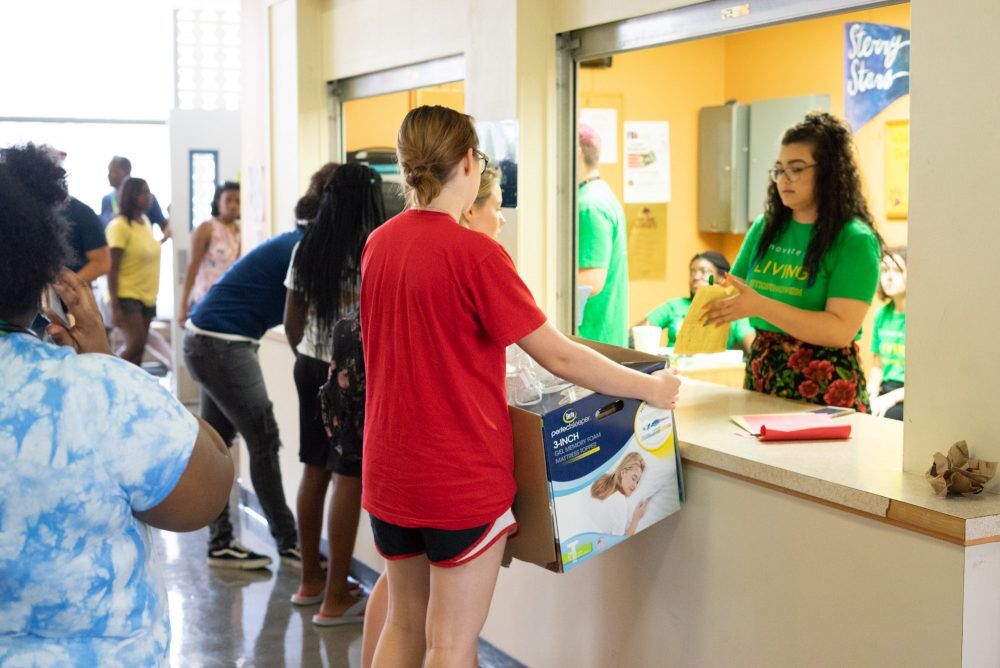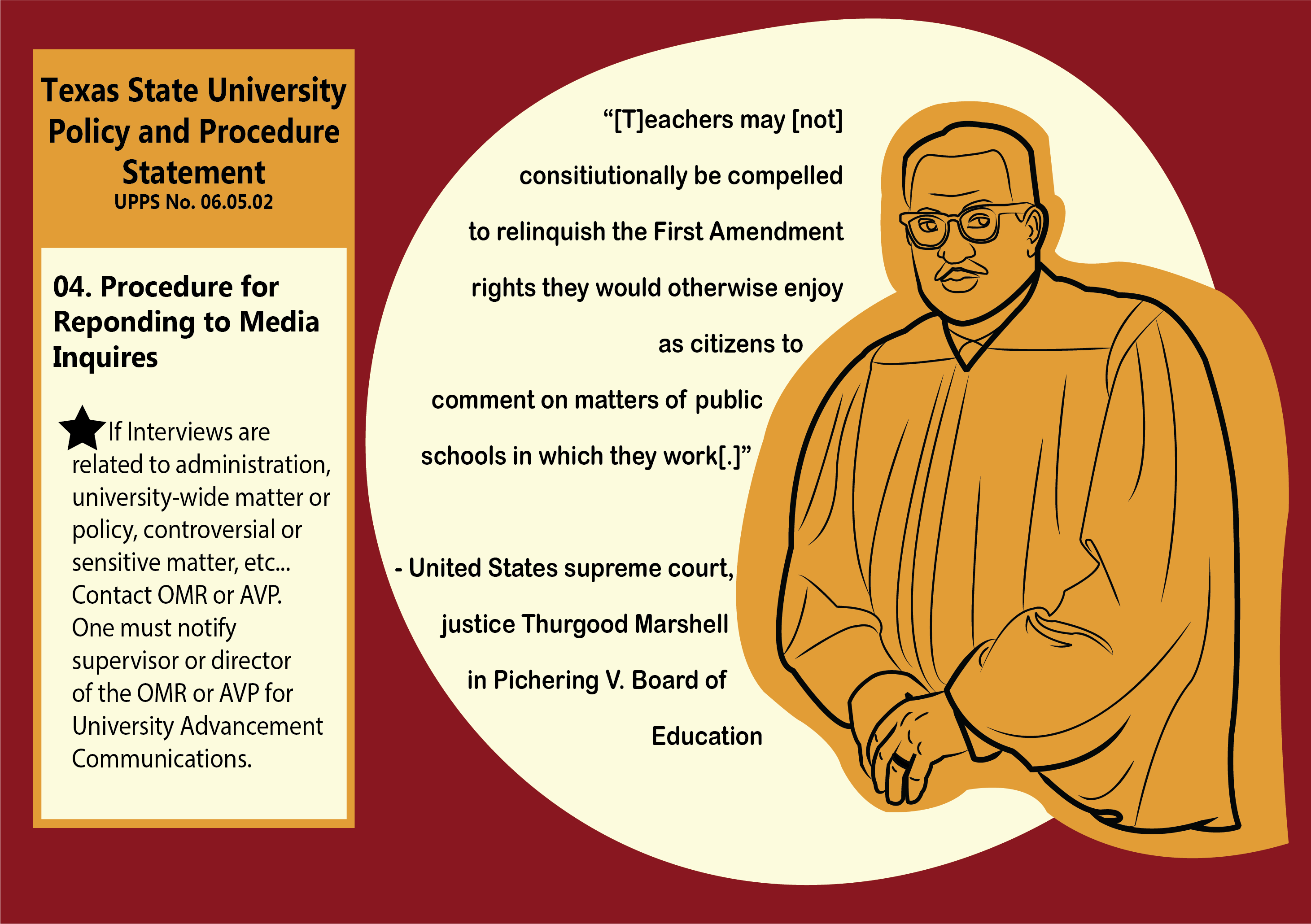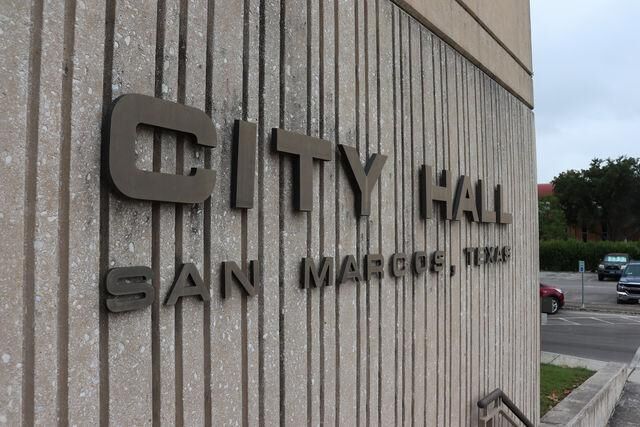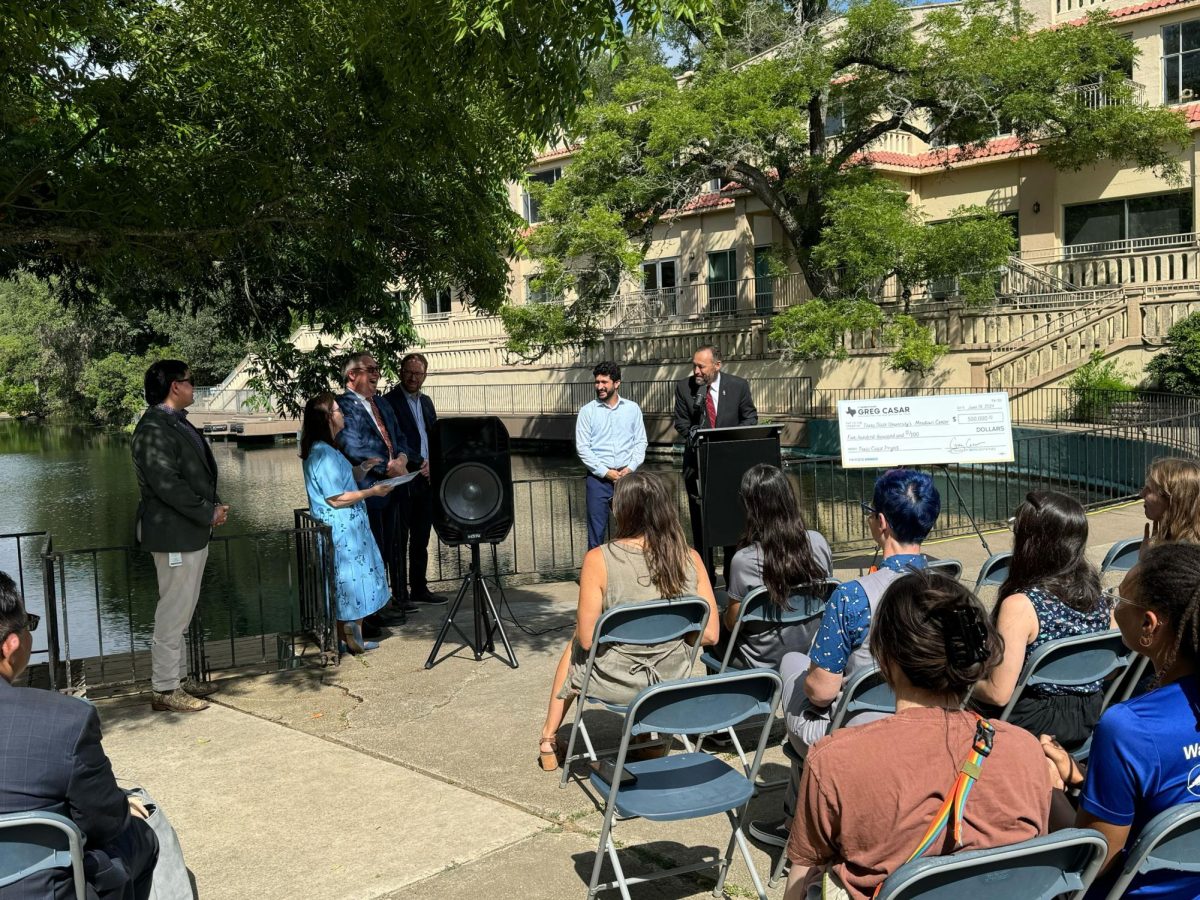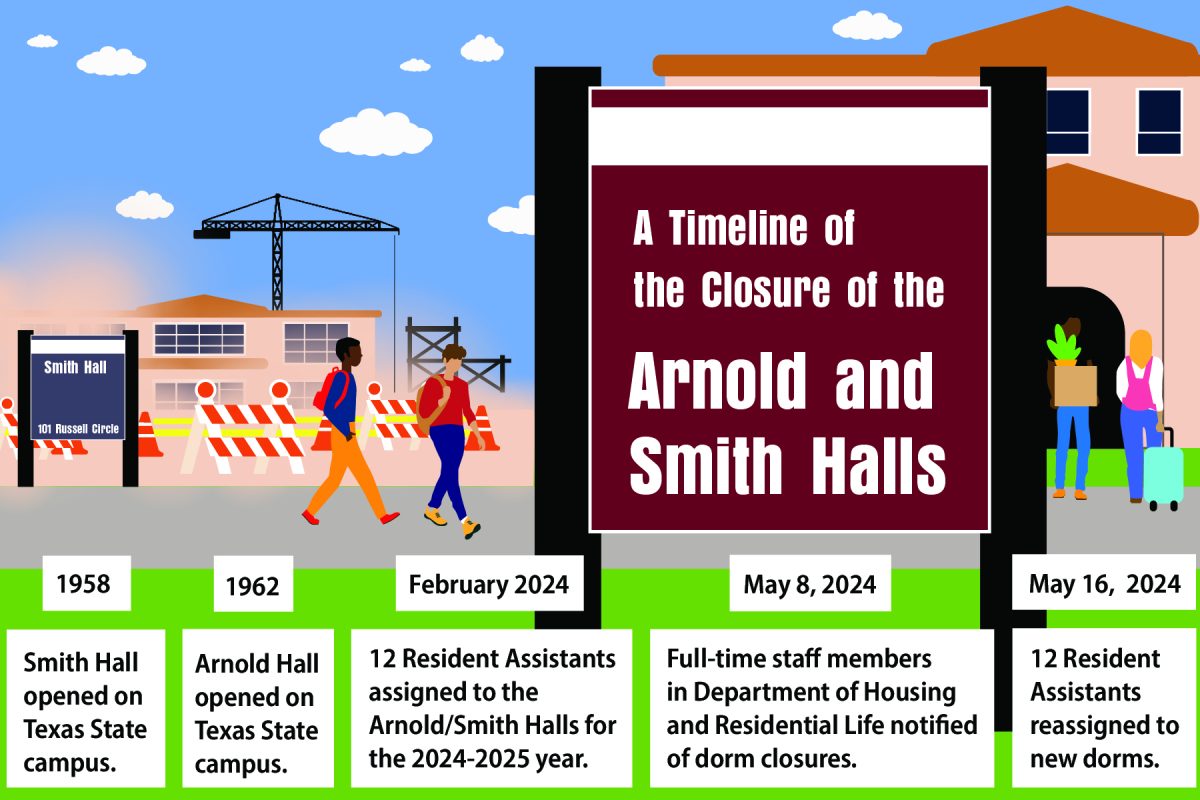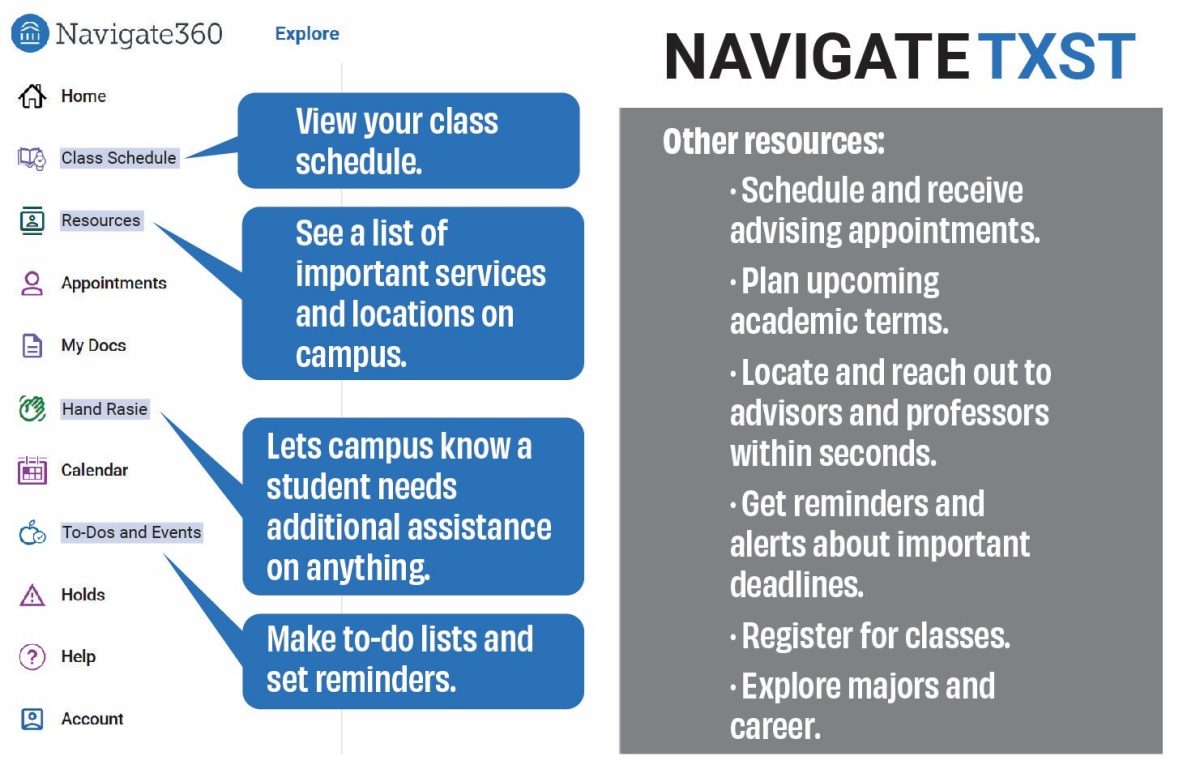On Oct. 7, The University Star published a column about overpopulation on campus and its effects. In the column, the writer interviewed three resident assistants (RAs) to discuss the topic. After the article was published, the RAs were punished for talking to the media with written warnings. On Jan. 13, the warnings were removed from the RAs’ accounts.
According to UPPS 06.05.02, Texas State employees are required to contact either their supervisor, the director of the Office of Media Relations or the assistant vice president for University Advancement Communications before talking to the media. Since the RAs did not follow this policy, they were given a written warning on their accounts.
One of the RAs, who has chosen to remain anonymous, said that they were not notified of this policy in their training and that this warning could have had possible dire effects on their employee accounts.
“During training, there wasn’t really any mention of [the policy] from anyone,” the RA said. “In the case of this interview, if my name were to be mentioned, that would be probation if there was somebody else that had a write-up, then they could be terminated at that point.”
Sandy Pantlik, vice president for marketing and communications, said that the consequences for employees who do not follow the media policy are decided by the employee’s supervisor.
“The consequences of not following a university policy are handled in accordance with the appropriate process, as determined by the status of the employee and policy concerned,” Pantlik told The Star in a written interview. “Generally, if a disciplinary action is deemed appropriate, that is made at the discretion of the employee’s supervisor.”
After attending mandatory meetings and having reports put on their files, the RAs turned to the Foundation for Individual Rights and Expression (FIRE). FIRE is an organization that helps people who believe that their First Amendment rights were violated. They primarily but not exclusively work with college students and campuses. The organization worked with the RAs to try to get the warnings removed from their accounts.
“I explained my situation, I sent them the recording, screenshots of all of the emails, and then after that, they scheduled a Zoom meeting with me. It was about an hour and it was just like, asking me questions about the situation,” the RA said.
FIRE contacted Texas State through a letter sent to the president, describing the situation and how it is a violation of the First Amendment even though the policy was broken.
“At Texas State, which is a public university, it is fully covered by the First Amendment to discuss with student and non-student journalists,” James Jordan, litigation fellow for FIRE said.
The defense against this case was that the RAs were speaking on a public concern: the dorm conditions. Since this was a public concern and it passed the Pickering Balancing test, a test in conjunction with the court case Pickering v. Board of Education, the RAs had the First Amendment right to speak on the issue with no barriers or punishments.
“When it comes to employees talking to the press, the law uses a Pickering Balancing test to see if what is being spoken about is a public concern and whether an individual’s rights to talk about something on a matter of public concern outweighs the employer’s interest in keeping them from speaking,” Jordan said.
In this case, overcrowding is a matter of public concern, so the RAs are covered under the First Amendment to speak to the press about it. Still, they received punishment.
“Overcrowding is something that definitely affects everyone even if you don’t live on campus,” the RA said. “I think it would be different if I was like, directly talking about how much I disliked my supervisor. That wouldn’t be a public concern, but in this case, it was.”
FIRE also brought to light the discussion about Texas State’s media policy, stating that, overall, it violates employees’ First Amendment rights to speak freely to the press and can possibly restrict free speech.
“We would say that this is a restriction on the First Amendment that to speak on an issue of public concern you have to get someone else’s permission before talking about anything that impacts you,” Jordan said. “So even if you’re employed it is a restriction to have to get someone else’s permission.”
FIRE called upon Texas State to change the policies for RAs and employees in general; to allow more freedom to speak to the press without having to get permission.
“So what [the policy change] would look like is just lowering the restrictions on RAs and allowing them to discuss in this case, dorm conditions … so it would just be opening up and allowing them to discuss this overriding issue of public concern,” Jordan said.
According to the RA, they were not informed of the removal of the warnings. They found out on their own accord.
“I’m happy I no longer have to worry about that write-up,” the RA said. “But what’s concerning to me is I never found out [about the removal]. So I wish that would have been made known to me by someone,”
Currently, Texas State has not connected with FIRE to consider the organization’s other request to change employees’ media policy.
“At the end of the day, I’m a student, like what they tell us always is I’m a student first and then an employee at the university,” the RA said.
RAs punished after University Star opinion column published
March 20, 2023
Donate to The University Star
Your donation will support the student journalists of Texas State University. Your contribution will allow us to purchase equipment and cover our annual website hosting costs.











